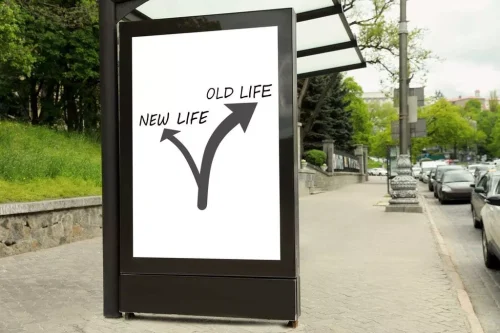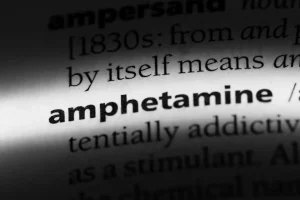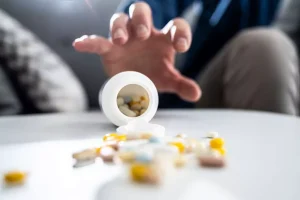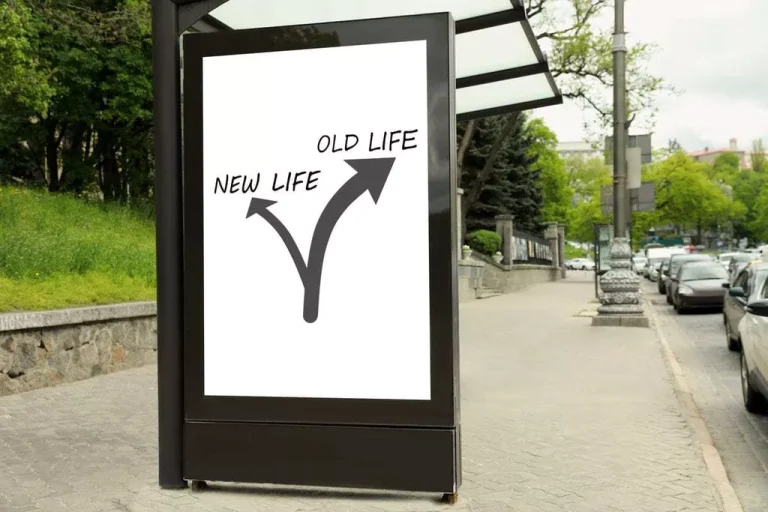
Many different philosophies about recovery and relapse exist, often with opposing tenets, which can leave you confused about which is correct. For some, relapse is viewed in a negative light and indicates weakness. But this view is considered harmful since it fosters feelings of guilt and shame that can hinder your ability to recover from a setback. For others, recovery is a personal growth process that usually involves a couple setbacks.2 Rather than viewing a relapse as shameful, this perspective looks at it as a learning experience. Sometimes, you unknowingly begin taking steps toward a relapse weeks or months before actually drinking or using drugs. Certain thoughts, feelings, and events may trigger cravings and urges for drugs and alcohol, and, if not properly dealt with, may increase your chances of relapsing.
Reevaluating and Modifying Treatment Plans

It’s fine to acknowledge them, but not to dwell on them, because they could hinder the most important action to take immediately—seeking help. Taking quick action can ensure that relapse is a part of recovery, not a detour from it. There is an important distinction to be made between a lapse, or slipup, and a relapse. The distinction is critical to make because it influences how people handle their behavior.
Careers – Join Our Team
- Managing stress is important because situations that give you emotional and mental stress can trigger addiction and cause a relapse.
- How individuals deal with setbacks plays a major role in recovery—and influences the very prospects for full recovery.
- Many individuals relapse within the first week of stopping their substance use in order to avoid withdrawal symptoms, or thereafter due to post-acute withdrawal symptoms which can last for up to 6 to 18 months.
- An addiction specialist or another mental health professional can help you develop additional coping strategies.
- • Avoid situations where people are likely to use drugs or alcohol.
Engaging in self-reflection can help identify areas for growth and development. Rebuilding a support network of individuals who are supportive of recovery is crucial for long-term success. Setting realistic goals, establishing new healthy habits, and staying focused on long-term recovery are essential steps in overcoming setbacks and ensuring a sustained journey towards sobriety. Many who relapse are notconsciously aware of the warning signs of relapse even as they areoccurring.

Drugs & Supplements

Joe was a successful triallawyer with an active practice in a small, well-respected firm. Colleagues, clients, and friends like him andsaw him as accomplished in every aspect of his life. Well known in his community, he served on thelocal school board, was active in his church, and directly worked on behalf going back to rehab ofseveral charitable community organizations. His wife was a community leader; he had a daughter in law school and ason studying at an Ivy League college. In PAWS, many symptoms often overlap with depression, although the PAWS symptoms tend to gradually improve over time. With your counselor or therapist, create a plan on how to handle the temptations that come with fun events like parties, weddings, holidays, and more.
- Moreover, compared to individuals who remitted with help, individuals who remitted without help had fewer problems or more resources on each of these indices.
- Triggers are things that lead a person to addiction and made them dependent on harmful substances for dealing with stressful situations.
- And the longer you can refrain from drinking, the better chance you have of success.
- Seeing addiction instead as a deeply ingrained and self-perpetuating habit that was learned and can be unlearned doesn’t mean it is easy to recover from addiction—but that it is possible, and people do it every day.
- It takes years to conduct studies on people recovering from alcoholism.
Obviously, if someone is under the influence of alcohol, opioids or other drugs, the visible effects of those drugs are pretty good indicators for relapse. However, it’s important to keep in mind that many people with substance use disorders are exceptionally good at hiding their use from those around them. Relapse is total dysfunction, where a person has continually engaged in a pattern of thoughts or behaviors that destabilizes recovery and makes the use of alcohol or other drugs appealing. To this person, a return to addiction makes sense because they’ve been internalizing, listening to and agreeing with the logic of addiction. In the event of any of these triggers, it can be helpful to check in with emotions and thoughts, recognize any signs of relapse, and implement prevention strategies. Relapse can be short-lived if the individual can return to their recovery process.

Care for Yourself
Upon relapse, some individuals may require inpatient treatment to stop using and manage symptoms of withdrawal. Most physical relapses are considered relapses of opportunity, meaning that they occur when an individual feels they will not get caught. If a person is in therapy during emotional relapse, the focus of therapy may pivot towards reinforcing the importance of self-care. Learning various acronyms can help a person identify when they need to improve their self-care, such as HALT (Hungry, Angry, Lonely, Tired).

